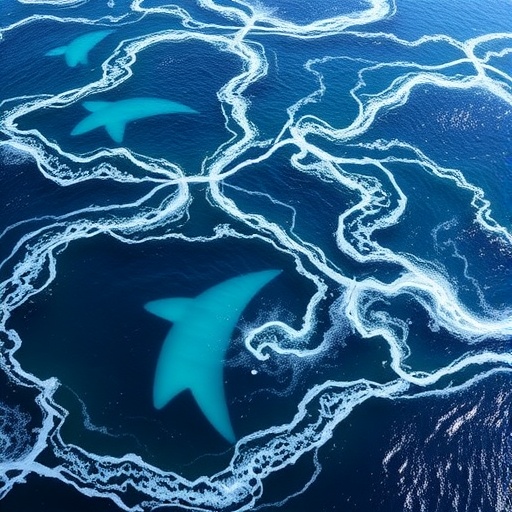In an urgent call to safeguard the world’s oceanic health, a coalition of leading marine scientists and environmental experts has advocated for an unequivocal and permanent ban on all extractive activities in international waters. These vast expanses of the high seas, lying beyond national jurisdiction, are currently subjected to escalating pressures from fishing, seabed mining, and hydrocarbon exploitation. This proposition is grounded in robust scientific evidence that highlights the irreversible threats such activities pose to marine biodiversity, global climate regulation, and equitable resource distribution.
The high seas function as one of Earth’s most critical ecological and climatic assets. Covering nearly half of the planet’s surface, these international waters serve as the largest contiguous carbon sink, playing a pivotal role in sequestering atmospheric carbon dioxide. The biological and nutrient cycles orchestrated within these oceanic realms facilitate the capture and long-term storage of carbon, underpinning efforts to mitigate anthropogenic climate change. Disruptions from extractive practices risk compromising this natural carbon storage capacity, potentially accelerating climate instability.
Marine biodiversity thrives within the high seas, supporting intricate food webs that extend well into national jurisdictions. Iconic pelagic species such as tuna, sharks, and krill depend on the unexploited refuges provided by these waters to sustain their populations. Overexploitation here not only decimates vulnerable species but also jeopardizes fisheries that millions of people globally rely on for sustenance and economic stability. The restoration of these populations through a cessation of extractive activities would enhance food security and contribute to fairer resource sharing, particularly benefiting lower-income nations in the Global South.
Fossil fuel extraction in international waters presents another facet of environmental peril. Current reserves onshore and within national waters are ample, and rapid advancements in renewable energy technologies refute any justification for exploiting offshore hydrocarbons. Continuing oil and gas exploitation on the high seas exacerbates greenhouse gas emissions, undermining global emission reduction targets and perpetuating dependence on carbon-intensive energy sources.
Seabed mining is emerging as an industrial frontier with profound environmental implications. Proponents argue that deep-sea minerals are essential for green technologies, such as batteries for electric vehicles. However, the environmental risks are neither controllable nor reversible. Extraction processes disturb sediment layers, disrupt delicate benthic ecosystems, and release stored carbon, creating feedback loops detrimental to climate resilience. Moreover, abundant mineral reserves exist on land, accessible under more stringent governance frameworks, making offshore mining a reckless gamble with planetary stewardship.
This collective scientific assessment draws on findings from the Convex Seascape Survey, an ambitious global initiative involving the University of Exeter, Blue Marine Foundation, and Convex Group Limited. This program integrates multidisciplinary research targeting the understanding of seabed ecosystems’ role in carbon sequestration and the development of effective conservation strategies. It reinforces the urgent necessity to align international maritime governance with science-based policies that secure the ecological integrity of the high seas.
International legal frameworks lag behind the ecological urgency. While the recently adopted UN High Seas Treaty offers a roadmap for enhanced protection, its implementation timeline is protracted, potentially spanning years. Given the rapid pace of environmental degradation and climate change, the research community urges immediate and decisive policy action, recommending a full and permanent moratorium on extractive uses mirroring the protective model established for Antarctica in the mid-20th century.
Expert voices underscore the critical nature of this proposal. Professor Callum Roberts, a prominent marine conservationist and lead author, emphasizes the high seas’ integral role in maintaining the ocean’s carbon storage capacity and ecosystem services. Similarly, Professor Johan Rockström highlights the high seas’ function as an indispensable regulator of the Earth system, crucial for maintaining global climate stability and preventing ecological tipping points with potentially catastrophic consequences for life on Earth.
The issue transcends environmentalism into the realms of ethics and economics. Mark Lynas, renowned science writer and climate advisor, frames the cessation of high seas exploitation as not only scientifically imperative but also morally urgent and economically rational. Protecting these waters ensures the persistence of marine life cycles fundamental to global food webs and supports socio-economic equity by safeguarding resources for future generations.
The article enlists insights from some of the world’s foremost experts, including Sylvia Earle, Daniel Pauly, Jessica Meeuwig, Rashid Sumaila, Stuart Pimm, and Andrew Forrest, among others. These researchers and practitioners bring diverse expertise spanning oceanography, fisheries science, conservation biology, ocean economics, and sustainable development, fortifying the scientific consensus advocating for sweeping protective measures.
Technical analysis further elaborates that the high seas biogeochemical dynamics, involving the biological pump and nutrient cycling, are integral to global carbon budgets. Disruptions caused by bottom trawling or mining activities result in habitat destruction and sediment resuspension, releasing previously sequestered carbon into the water column and atmosphere. Moreover, overfishing in these regions leads to trophic cascades that destabilize food webs, reducing ecosystem resilience and productivity.
The scientific community underscores the feasibility of banning extractive activities permanently through existing international legal mechanisms, enhanced by political will and stakeholder engagement. Drawing lessons from the Antarctic Treaty System, this approach envisions a governance paradigm prioritizing conservation and sustainable management, effectively halting the ecological degradation wrought by exploitation.
Ultimately, this compelling body of research constitutes a clarion call for a paradigm shift in ocean stewardship. Protecting the high seas from extraction is indispensable for preserving marine biodiversity, stabilizing the global climate system, and ensuring equitable access to ocean resources. Achieving this will require decisive, coordinated international policies backed by rigorous scientific advocacy, as humanity confronts the intertwined crises of biodiversity loss and climate change.
Subject of Research: Marine conservation, high seas protection, carbon sequestration, biodiversity preservation, sustainable ocean governance
Article Title: Why we should protect the high seas from all extraction, forever
News Publication Date: 4-Jun-2025
Web References: http://dx.doi.org/10.1038/d41586-025-01665-0
Keywords: Marine conservation, Conservation policies, Marine biodiversity, Biodiversity threats, Marine life, Marine ecology




